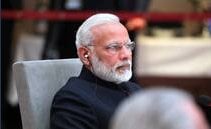The 2024 electoral season is in full swing, with markets facing unexpected challenges. An analysis of electoral risks for investors.

2024 has been heralded as an exceptional year for the amount of political elections in the world. With potential repercussions, obviously, on the financial markets.
Surprise results in some of the largest developing countries are already illustrating how vulnerable markets are to political issues and how treacherous it is to trust opinion polls to predict the outcome.
From Mumbai to Mexico City, the election year – in which 40 states hold national votes – has already impressed investors, providing an early warning with European Union and U.K. elections close and five months away before the US presidential contest.
Often, forecasts accurately predict headline outcomes, such as Claudia Sheinbaum’s landslide victory in becoming Mexico’s first female president, while failing to capture more nuanced outcomes, such as how many seats Modi’s party would occupy in parliament. An analysis by Bloomberg explores the risks for investors in the face of electoral dynamics.
The stakes have also become higher as an era of deeply rooted populism takes hold and rising nationalism only blurs the lines between politics and markets.
Markets overwhelmed by the vote: the cases of Mexico, India, South Africa
In the run-up to the Mexican vote, analysts had correctly predicted that Sheinbaum would take the presidency, but they had underestimated the possibility of his party winning an absolute majority in Congress. When that almost happened – the party was down to just a few seats in the Senate – the markets collapsed.
The peso, which until the end of May had been the world’s best-performing currency, dropped 5% in two days of trading. The surge in volatility has derailed the appeal of using the peso in the carry trade, in which investors borrow in countries with low interest rates and invest in those where rates are higher.
In India, exit polls drastically overestimated the size of Modi’s Bharatiya Janata Party’s victory. When the votes came in and it became clear that his party had lost its majority in parliament, the stock market took a nosedive, causing the NSE Nifty 50 Index to plummet by nearly 6% on its worst day in more than four years.
“This reminds us that markets struggle to appreciate the nuances of political risk”, said Paul Donovan, chief economist at UBS Global Wealth Management, “and that the apparent conviction of opinion polls needs to be treated with caution”.
In South Africa, money managers had positioned themselves for the ruling African National Congress to end up with enough support to govern comfortably in a coalition with a smaller party.
The picture instead turned out to be much more complicated, leaving the ANC to explore a coalition with a broader range of parties, dragging its currency lower.
For Nick Rohatyn, a money manager specializing in emerging markets, the votes demonstrated how quickly an investor can be punished for betting too much on an outcome.
Europe and the United Kingdom in the crosshairs, what can happen in the markets?
The next notable global elections are in Europe, for the EU Parliament, and in the United Kingdom.
373 million citizens across the European Union will choose members of the European Parliament in a decision involving 27 countries which will help shape policies on trade, budget rules, and climate. It is seen as a test of whether far-right parties are really gaining weight, making it an indicator of the political winds.
Meanwhile, polls on the UK 4th July election suggest a victory for the now-opposition Labor Party, but there are wide estimates as to the size of its expected victory. Most speculation has focused on a likely victory for Keir Starmer, which could eclipse that of Tony Blair more than a quarter of a century ago.
Such an avalanche could strengthen the push for progressive policies, such as tax overhaul to distribute wealth more equitably. According to a survey of Nomura Holdings Inc. clients released Wednesday, investors say the Labor Party is likely to renege on its promise not to raise income or corporate taxes.
As the vote approached, the British pound gained ground against its counterparts, reaching its strongest level against the dollar in almost three months.
The US vote in the crosshairs of the stock markets
In the United States, with President Joe Biden and Trump going head-to-head, traders have begun bracing for more volatility as Trump’s return could intensify a trade war, shake up the bond market and drag other currencies down.
Some stock pickers are already loading up on stocks of U.S. companies set to thrive under Trump and shorting those that stand to lose, such as renewable energy companies, said Mauricio Jose Moura, founder and partner at Gauss Zaftra. The Cayman Islands-based fund that manages $20 million in assets specializes in making election-based bets.
“Polls are not a prediction, they are a snapshot”, he said. “If you look at polls as a prediction, you will be wrong”, he suggested.
Original article published on Money.it Italy 2024-06-08 15:33:32. Original title: Ecco come le elezioni nel mondo stanno già turbando i mercati





